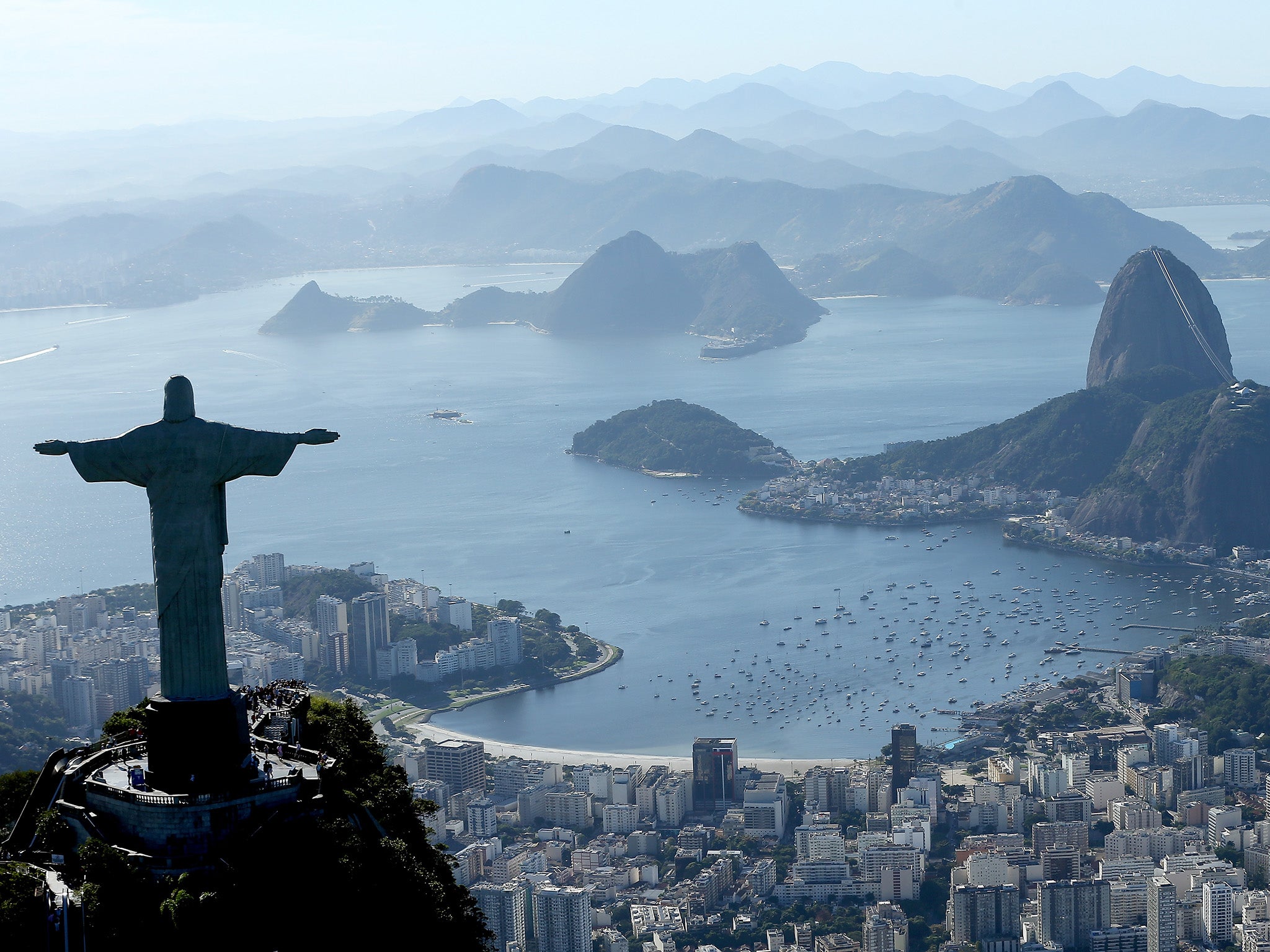Zika scare means Olympics Games should not be held in Rio, 150 top medical experts say
The letter puts pressure on WHO to take a firmer stance on whether going ahead with the Rio games this summer is wise

Your support helps us to tell the story
From reproductive rights to climate change to Big Tech, The Independent is on the ground when the story is developing. Whether it's investigating the financials of Elon Musk's pro-Trump PAC or producing our latest documentary, 'The A Word', which shines a light on the American women fighting for reproductive rights, we know how important it is to parse out the facts from the messaging.
At such a critical moment in US history, we need reporters on the ground. Your donation allows us to keep sending journalists to speak to both sides of the story.
The Independent is trusted by Americans across the entire political spectrum. And unlike many other quality news outlets, we choose not to lock Americans out of our reporting and analysis with paywalls. We believe quality journalism should be available to everyone, paid for by those who can afford it.
Your support makes all the difference.The Summer Olympic Games set to open in August in Rio de Janeiro should be moved elsewhere or at least postponed because of the Zika virus, 150 of the world’s top doctors, researchers and medical ethicists have demanded in a letter to the World Health Organisation.
The blunt missive, delivered on Friday to the Geneva-based WHO, is the latest blast in a growing chorus of concern coming from both doctors and also from some athletes about the wisdom of going ahead with the Olympics given the severity of the Zika virus crisis in Brazil.
It also asks whether the WHO’s reluctance thus far to offer any kind of recommendations to reschedule or relocate the Games might be a result of a conflict of interest between itself and the International Olympic Committe, IOC. The two bodies signed a memorandum of understanding on future partnerships six years ago, the letter points out.
“Many athletes, delegations, and journalists are struggling with the decision of whether to participate in the Rio 2016 Games,” it says. “We agree with the US Centres for Disease Control recommendation that workers should ‘Consider delaying travel to areas with active Zika virus transmission’. If that advice were followed uniformly, no athlete would have to choose between risking disease and participating in a competition that many have trained for their whole lives.”
Among the signatories to the letter is Amir Attaran, a University of Ottawa professor who wrote earlier this month in Time magazine that having the Olympics in Rio de Janeiro had become unwise. Dr Arthur Caplan, the director of medical ethics at New York University, co-authored the letter, as did NYU professor Lee Ingel and Christopher Gaffney from the University of Zurich.
“WHO must revisit the question of Zika and postponing and/or moving the Games,” the letter concludes. “We recommend that WHO convene an independent group to advise it and the IOC in a transparent, evidence-based process in which science, public health, and the spirit of sport come first. Given the public health and ethical consequences, not doing so is irresponsible.”
“What we’re really focused on is can we have transparent, open, frank, televised, out-in-the-open discussion with experts” unconnected to the Olympics, Dr Caplan told ABC News in New York. “We think WHO is close to the IOC. ... They work together a lot.”
There is concern not only for the athletes but also for hundreds of thousands of visitors expected at the Olympics. Also cause for possible alarm is the impact all those visitors might have on helping the virus to spread further around the world when they return home afterwards.
“We’re worried about bringing the mosquito back to places it isn’t, like India,” Dr Caplan said. “You have people who will be infected and ... there are people literally coming from everywhere.”
The letter originally had 125 names attached to it but an additional 25 experts volunteered just on Friday to add their signatures to it.
Read more
In addition to the Zika threat, there have been concerns about elevated levels of pollution in some of the outdoor water-based competitions like rowing and sailing. An elevated cycle track that was constructed along the sea’s edge also in preparation for the Games drew international headlines last month when a portion of it collapsed killing two people.
Brazil has been the hardest hit by the Zika crisis although it has now spread to 58 countries around the world. The WHO declared it a global health emergency in February. Bites from mosquitos infected with Zika have been connected to growing numbers of microcephaly, a birth defect that causes babies to be born with unusually small heads and underdeveloped brains.
The country has so far reported 20,000 probable Zika cases, and 1,300 confirmed cases of microcephaly.
The United States is attempting to ramp up preparations for possible occurrences of Zika within the 50 states although Congress this week left Washington for a two-week break without first passing funds medical officials have been demanding for researching and combating the virus.
Join our commenting forum
Join thought-provoking conversations, follow other Independent readers and see their replies
Comments